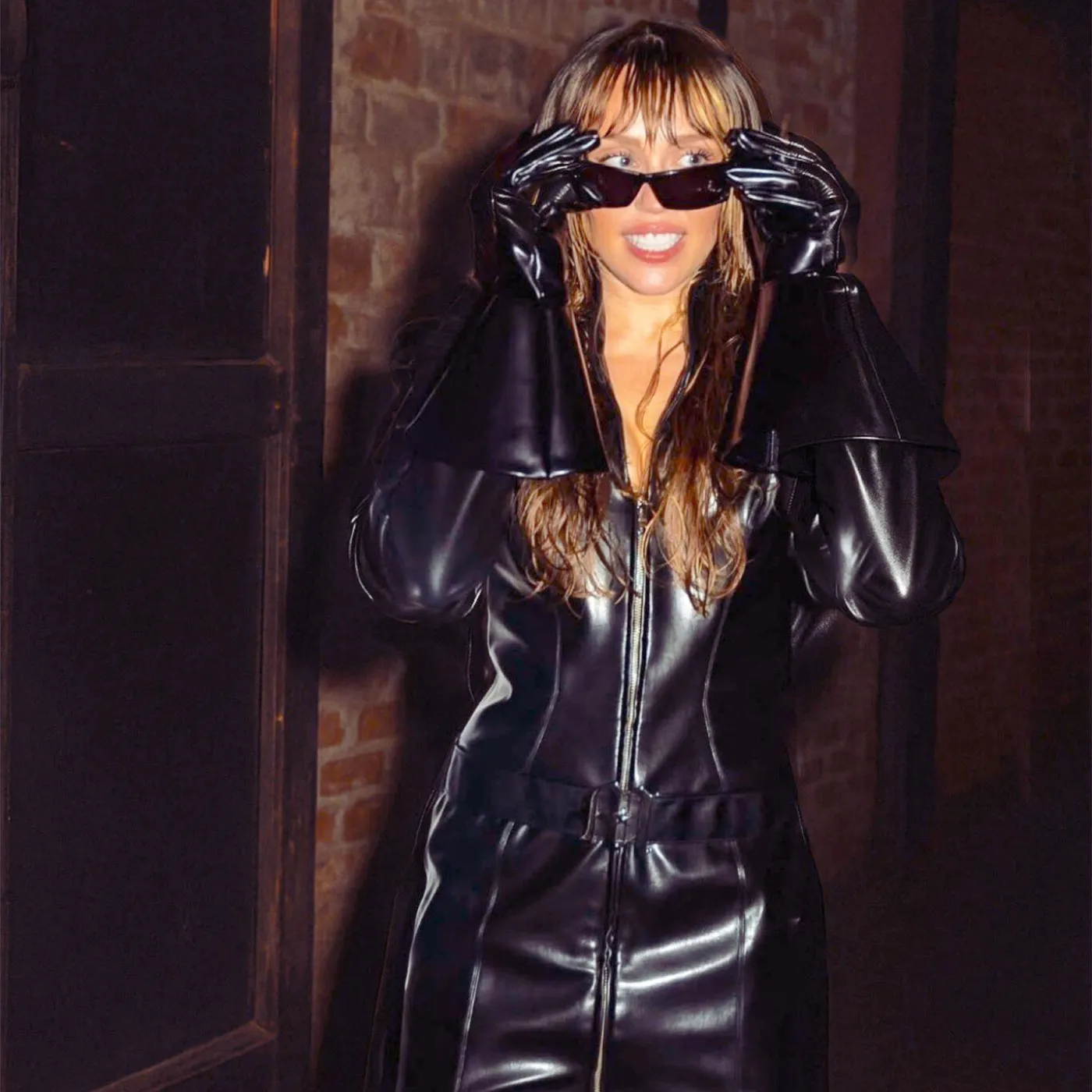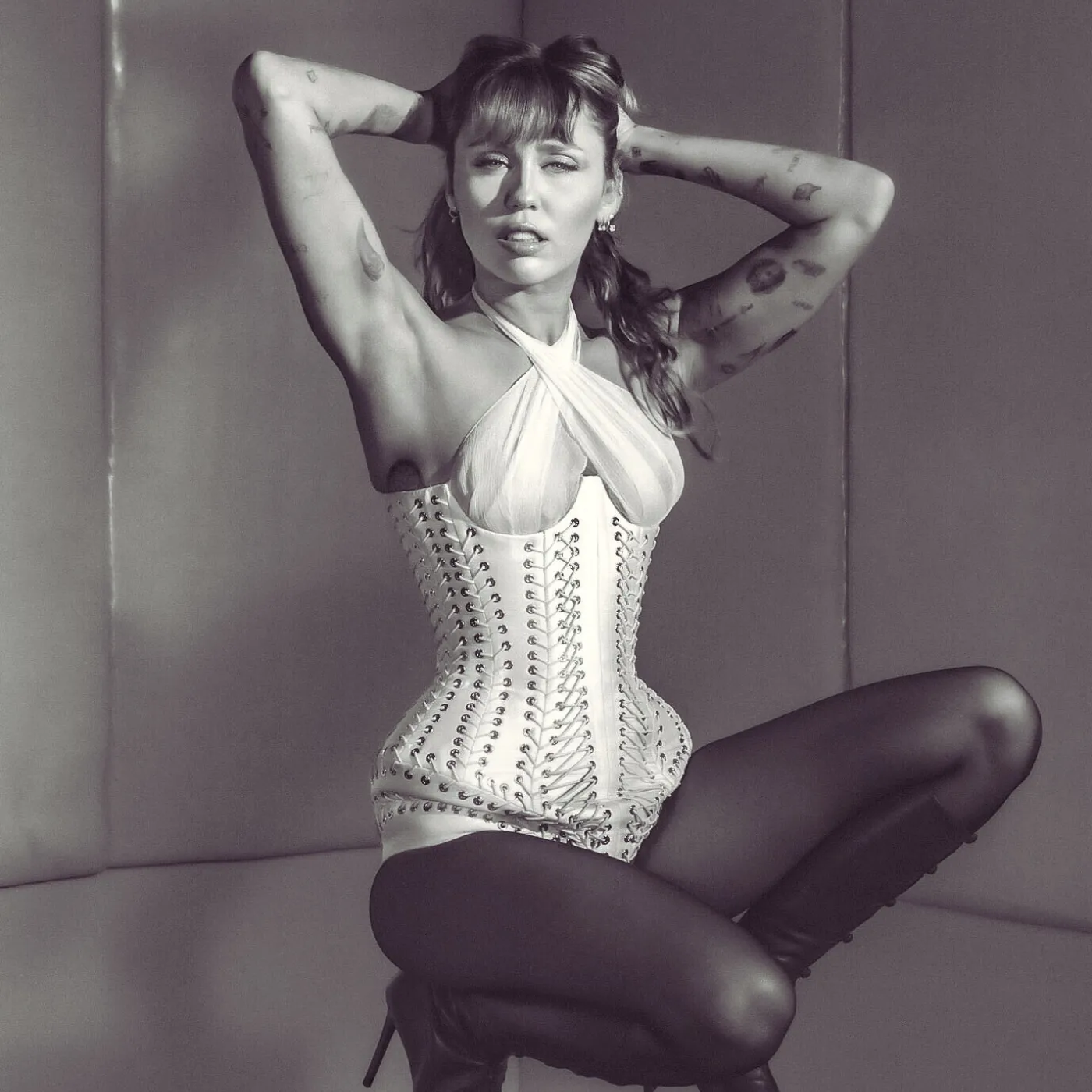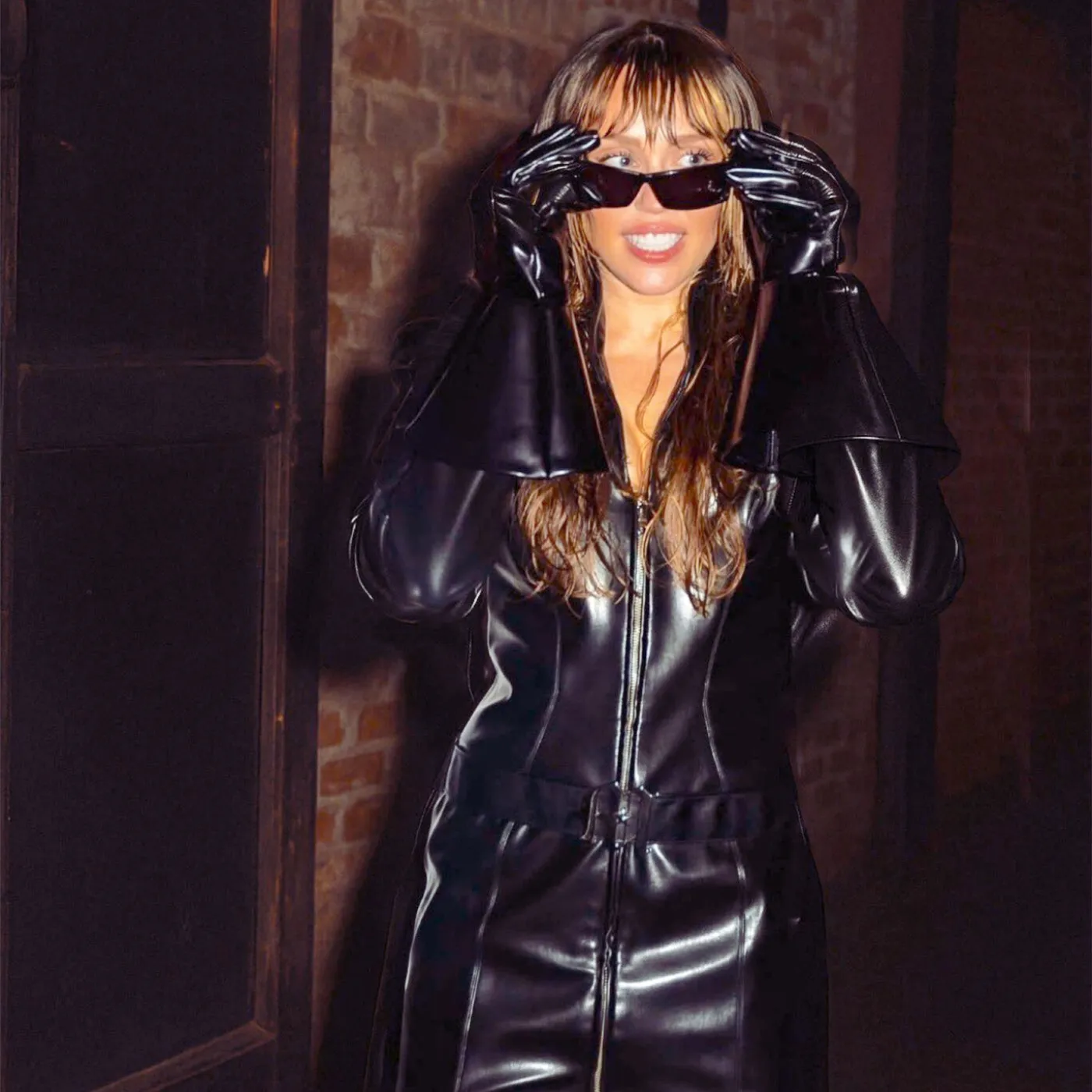

Miley Cyrus Throws Shade at ‘Adult Hypocrisy’ Over Her 2013 Controversy
When it comes to pop culture icons who redefine the boundaries of fame and controversy, Miley Cyrus stands out as one of the most fearless, authentic, and polarizing figures of the last decade. Known for her bold reinventions and unapologetic style, Miley’s career has been a rollercoaster of viral moments, public scrutiny, and fierce debates. But as she recently revealed, the judgment and backlash she faced during her notorious 2013 era were less about her actions and more about the adults who failed to handle the situation maturely.

In a candid, eye-opening statement, Miley Cyrus said, “In 2013, adults didn’t act like adults. I would never judge a 19- or 20-year-old girl. Back then, what I was doing seemed shocking, but now it doesn’t seem so wild. I was audacious, brave, and authentic.” This confession has sent shockwaves through social media, reigniting conversations about double standards, societal expectations, and the toxic culture of public shaming, especially aimed at young women in the spotlight.
The 2013 Miley: A Cultural Earthquake
To understand the gravity of Miley’s reflection, we need to rewind to 2013 — a year that marked a seismic shift in her public persona. The former Disney darling took a dramatic turn away from her wholesome Hannah Montana image to embrace a more rebellious, edgy, and sexually charged identity. From her infamous VMAs performance featuring provocative dance moves to bold music videos and an aggressive media presence, Miley became the epitome of controversy.
While many saw this as a radical transformation, others labeled it shocking or even irresponsible. But Miley’s recent statement challenges this narrative. She insists her actions were not reckless but rather a bold expression of authenticity — a courageous stand against a rigid system that demanded conformity.
When Adults Fail: The Real Controversy
Miley’s critique is pointed: the real issue in 2013 wasn’t her behavior but the adults — including media figures, parents, and cultural gatekeepers — who failed to act responsibly. According to her, those adults projected their own fears and biases onto a young woman daring to break free from traditional expectations.
This idea flips the script on the usual conversation. Instead of focusing on Miley’s perceived missteps, it questions the maturity and accountability of the critics themselves. How often do adults hold young women to impossible standards while shielding themselves from scrutiny?
Miley’s reference to “petitions from mothers” highlights how the backlash wasn’t just professional criticism but also a deeply personal and organized social attack. These mothers wielded their concerns like weapons, attempting to police Miley’s image and, by extension, control the narrative of what a young woman’s behavior “should” look like.

Bold, Brave, Authentic: Miley’s Defiant Mantra
Despite the firestorm, Miley remained steadfast. Her self-description as audacious, brave, and authentic serves as a powerful reclaiming of her narrative. It’s a reminder that behind every viral moment was a young woman asserting her right to self-expression — even when that meant challenging societal norms.
Her refusal to judge “a 19- or 20-year-old girl” is a call for empathy and understanding. It points to the unfair standards often applied to young female celebrities, who are scrutinized far more harshly than their male counterparts.
The Role of Social Media: Amplifying Drama, Creating Icons
No discussion of Miley’s 2013 era is complete without acknowledging the role of social media. Platforms like Facebook, Twitter, and Instagram transformed the way celebrities are perceived and judged. Miley’s every move became fodder for viral memes, heated discussions, and public condemnation — often from people who had never met her.
But Miley was no passive victim. She leveraged the same tools that fueled the controversy to build a direct connection with her fans and control her story. Her savvy use of social media to share candid moments, confront critics, and showcase her true self turned potential PR disasters into opportunities to spark conversations and build loyalty.
From Shock to Shift: Miley’s Impact on Cultural Norms
Looking back, what seemed “shocking” in 2013 now appears as a harbinger of change. Miley’s defiance played a crucial role in reshaping cultural norms around female empowerment and authenticity. What was once taboo — a young woman unapologetically owning her identity — has become increasingly accepted and even celebrated.
Her statement underlines that boldness and courage are not just youthful rebellion but important catalysts for social progress. By standing firm amid criticism, Miley helped pave the way for a more inclusive and open-minded dialogue about self-expression.
The Backlash: A Mirror of Society’s Anxieties
Of course, Miley’s journey was never smooth. The backlash she faced is a reflection of broader societal anxieties about gender, control, and morality. The “petitions” and public outcry represent the tension between conservative values and emerging progressive voices.
Miley’s experience sheds light on the double-edged sword of fame: the power to influence cultural conversations and the risk of becoming a lightning rod for public anger.
Why Miley’s Reflection Matters Today
In today’s climate of cancel culture and public scrutiny, Miley’s words resonate more than ever. Her call-out that “adults didn’t act like adults” serves as a stark reminder that we must hold everyone accountable — not just the young people who push boundaries.
Her story encourages fans and critics to pause before rushing to judgment and to recognize the courage it takes to be authentic in the glare of the public eye. It invites a deeper conversation about how society treats young women, fame, and the cost of authenticity.
The Legacy of Miley Cyrus: More Than Just Headlines
Ultimately, Miley Cyrus’s 2013 chapter is far more than just a collection of shocking, headline-grabbing moments. It stands as a powerful testament to the transformative power of authenticity and the extraordinary resilience required to push back against outdated social norms and rigid expectations. In an era where young women—especially those in the public eye—are often boxed into narrow roles or swiftly judged for daring to be different, Miley’s journey reminds us that boldness is not synonymous with recklessness. Rather, it is a fearless, unapologetic expression of self that challenges the status quo and redefines what it means to be truly authentic.
Her actions and choices during that tumultuous time were a deliberate rebellion against conformity, an assertion that individuality should be celebrated rather than censured. This wasn’t just a phase of youthful rebellion; it was a conscious stand to reclaim her narrative and demand space to grow on her own terms—something many fans and critics alike have come to respect over time.

As Miley Cyrus herself boldly declares, she was “audacious, brave, and authentic”—words that resonate far beyond the fleeting viral clips, tabloid headlines, or public outrage. This legacy she crafted calls on all of us to embrace courage in the face of criticism, to question the hypocrisies that often govern cultural expectations, and to celebrate individuality as a vital force for change.
Her story is a clarion call for anyone who has ever felt pressured to silence their true selves—to recognize that being unapologetically you is not just an act of rebellion but an act of profound strength. Through her journey, Miley reminds us that the path to self-discovery may be fraught with challenges and controversy, but it is also the most meaningful way to inspire others and reshape cultural norms for future generations.


















